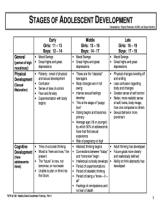Is it bad to talk to Yourself Out Loud?
Talking to yourself out loud, also known as self-talk, is a common behavior, and whether it's "bad" or not depends on the context and frequency. There are both pros and cons to this behavior:
Pros:
Problem Solving: Talking to yourself can be an effective way to work through complex problems and make decisions. Verbalizing your thoughts can help you organize ideas and gain clarity.
Memory Aid: Speaking out loud can improve memory retention. When you talk through information or tasks, you reinforce your understanding and recollection of them.
Emotional Release: Verbalizing your feelings and emotions can be a healthy way to express and manage them. It can provide a sense of relief and catharsis.
Self-Encouragement: Self-talk can serve as self-motivation. By expressing positive affirmations or encouragement, you can boost your confidence and resilience.
Practice: Practicing conversations, presentations, or speeches out loud can help you improve your communication skills and confidence in public speaking.
Cons:
Distraction: Excessive self-talk, especially in public or when others are around, can be distracting to both yourself and others. It may interfere with your ability to focus on tasks or engage in social interactions.
Stigma: In some social and cultural contexts, talking to yourself out loud may be stigmatized. People may perceive it as odd or indicative of a mental health issue, although this is not always the case.
Excessive Negative Self-Talk: If your self-talk is primarily negative or self-critical, it can harm your self-esteem and mental well-being. Chronic negative self-talk can contribute to stress and anxiety.
Interference with Sleep: If you find yourself talking to yourself excessively before bed, it can interfere with sleep and relaxation. Racing thoughts and self-talk may keep you awake.
Possible Sign of Underlying Issues: In rare cases, excessive or persistent self-talk may be associated with underlying mental health conditions, such as anxiety, depression, or obsessive-compulsive disorder. If self-talk is disruptive and distressing, it may be a sign of a larger issue.
Whether talking to yourself out loud is "bad" depends on the context, frequency, and the impact it has on your life. Occasional self-talk for problem-solving, motivation, or organization is generally considered normal and beneficial. However, if you find that it is causing issues, interfering with your daily life, or accompanied by distressing thoughts or emotions, it may be worth seeking guidance from a mental health professional to better understand and address the underlying causes.
Talking to Yourself Out Loud: Is It a Sign of Something?
Talking to yourself out loud is a common behavior, and it is not necessarily a sign of anything serious. In fact, it can be a healthy and beneficial way to communicate with yourself and process your thoughts and feelings.
However, there are some cases where talking to yourself out loud may be a sign of a mental health condition, such as anxiety or schizophrenia. If you are concerned about your self-talk, or if it is interfering with your daily life, it is important to talk to a mental health professional.
Self-Talk and Its Role in Communication and Coping
Self-talk is a form of internal communication that can play a significant role in our overall well-being. It can help us to:
- Organize our thoughts and ideas
- Process emotions and feelings
- Motivate ourselves to achieve goals
- Boost our self-confidence
- Improve our focus and concentration
- Deal with stress and anxiety
Self-talk can also be used as a coping mechanism to help us deal with difficult situations or challenges. For example, if we are feeling anxious about a presentation at work, we might tell ourselves things like, "I am prepared and I can do this," or "I am not alone and there are people who support me."
The Psychology and Benefits of Verbal Self-Expression
There is a growing body of research on the psychology and benefits of verbal self-expression. Studies have shown that talking to yourself out loud can help to:
- Improve memory and recall
- Boost creativity and problem-solving skills
- Reduce stress and anxiety
- Promote self-awareness and self-compassion
- Increase self-confidence and motivation
Self-Talk Across the Lifespan: What's Considered Normal?
Self-talk is a normal behavior at all stages of life. However, the way that we talk to ourselves may change over time. For example, young children may talk to themselves out loud more often than adults, and they may use more concrete and literal language. As we get older, our self-talk tends to become more internal and abstract.
Personal Experiences and Reflections on Talking to Oneself
Many people have found self-talk to be a valuable tool for self-discovery and growth. Here are a few personal experiences:
- One person used self-talk to overcome her fear of public speaking. She would tell herself things like, "I am a confident speaker," and "My audience wants to hear what I have to say." As a result, she was able to give a successful presentation at work.
- Another person used self-talk to lose weight. He would tell himself things like, "I am strong and healthy," and "I can resist unhealthy foods." As a result, he was able to lose 50 pounds and keep it off.
- A third person used self-talk to cope with anxiety. She would tell herself things like, "I am safe and in control," and "I can handle this situation." As a result, she was able to manage her anxiety more effectively.
These are just a few examples of how self-talk can be used to improve your life. If you are struggling with a particular issue, or if you simply want to boost your overall well-being, try incorporating self-talk into your daily routine.
Conclusion
Self-talk is a normal and healthy behavior that can help us to improve our communication, coping skills, and overall well-being. If you are concerned about your self-talk, or if it is interfering with your daily life, it is important to talk to a mental health professional.













